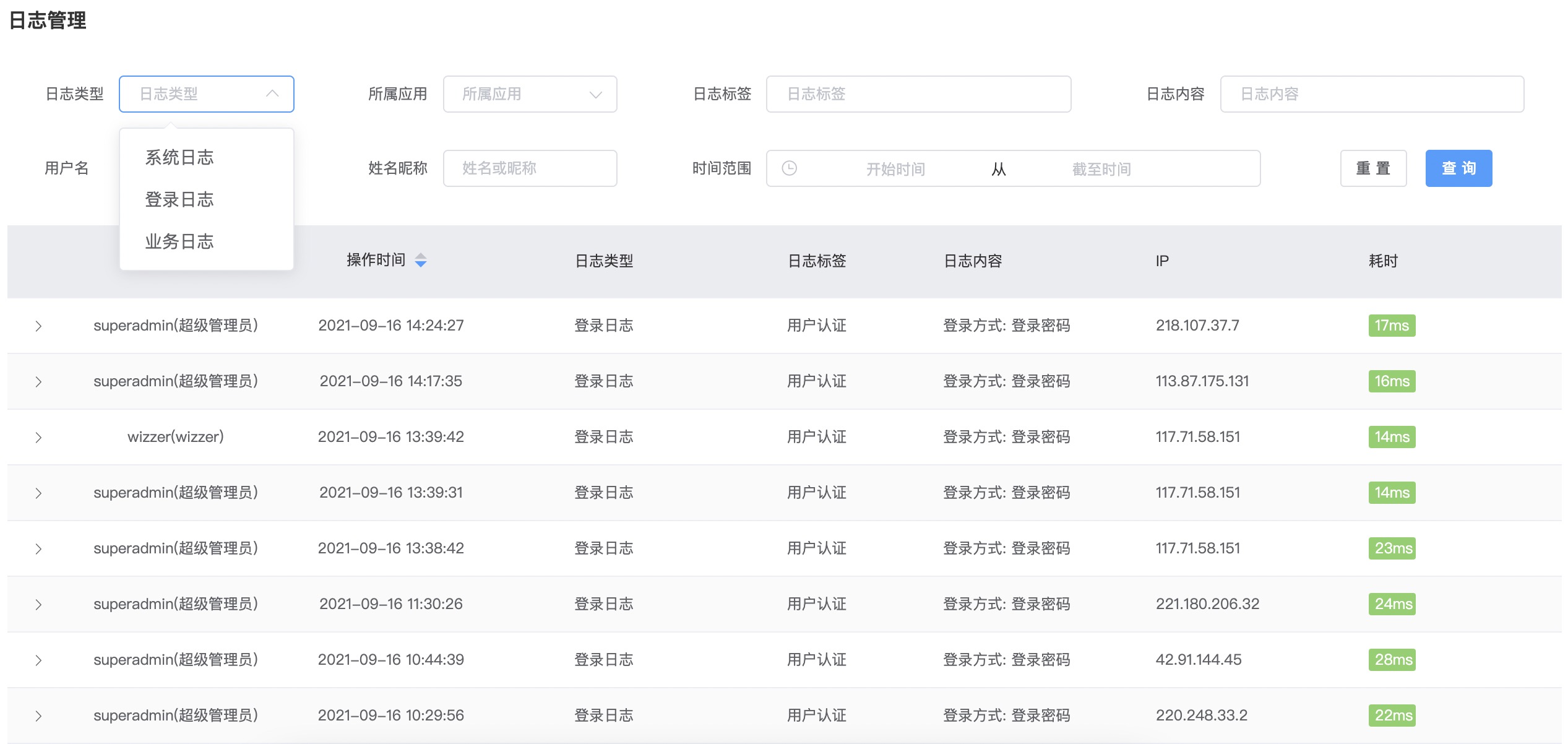# Logging System
# Log Generation
Microservice modules such as
wk-platform-serverincorporate thewk-starter-logcomponent and configure itUse the annotation
@SLog(tag = "Data Dictionary")on the controller class to define the log tagUse the annotation
@SLog(value = "")on the controller method to define the log content
@IocBean
@At("/sys/dict")
@SLog(tag = "Data Dictionary")
@ApiDefinition(tag = "Data Dictionary")
@Slf4j
public class SysDictController {
@At
@Ok("json")
@POST
@SaCheckPermission("sys.config.dict.update")
// value can use expressions to get parameters
@SLog(value = "Modify dictionary item:${dict.name}")
public Result<?> update(@Param("..") Sys_dict dict, HttpServletRequest req) {
dict.setUpdatedBy(SecurityUtil.getUserId());
sysDictService.updateIgnoreNull(dict);
sysDictService.cacheClear();
return Result.success();
}
}
- Some information can only be obtained after execution. This can be set through expressions or using the built-in
_slog_msgattribute name
// Method 1
@At("/disabled")
@Ok("json")
@POST
@SaCheckPermission("sys.config.dict.update")
@SLog(value = "Enable/Disable:${id}-")
public Result<?> changeDisabled(@Param("id") String id, @Param("disabled") boolean disabled, HttpServletRequest req) {
int res = sysDictService.update(Chain.make("disabled", disabled), Cnd.where("id", "=", id));
if (res > 0) {
if (disabled) {
// _slog_msg is a built-in attribute name, automatically appended to value
req.setAttribute("_slog_msg", "Disabled");
} else {
req.setAttribute("_slog_msg", "Enabled");
}
return Result.success();
}
return Result.error();
}
// Method 2
@At("/disabled")
@Ok("json")
@POST
@SaCheckPermission("sys.config.dict.update")
@SLog(value = "Enable/Disable:${id}-${req.getAttribute('_result')}")
public Result<?> changeDisabled(@Param("id") String id, @Param("disabled") boolean disabled, HttpServletRequest req) {
int res = sysDictService.update(Chain.make("disabled", disabled), Cnd.where("id", "=", id));
if (res > 0) {
if (disabled) {
req.setAttribute("_result", "Disabled");
} else {
req.setAttribute("_result", "Enabled");
}
return Result.success();
}
return Result.error();
}
# Log Query
The system has three default log types in the
LogTypeenumeration. You can extend these according to your business needsThe system uses database storage by default (MongoDB is optional). Database storage automatically partitions tables by month and supports cross-month queries

# Trace Tracking
It has log trace tracking functionality, meaning that in program runtime logs, request sources, responses, and Dubbo call chains can be recorded and tracked, facilitating problem analysis in distributed systems
Using ELK, aggregated logs can query the entire trace chain through traceId